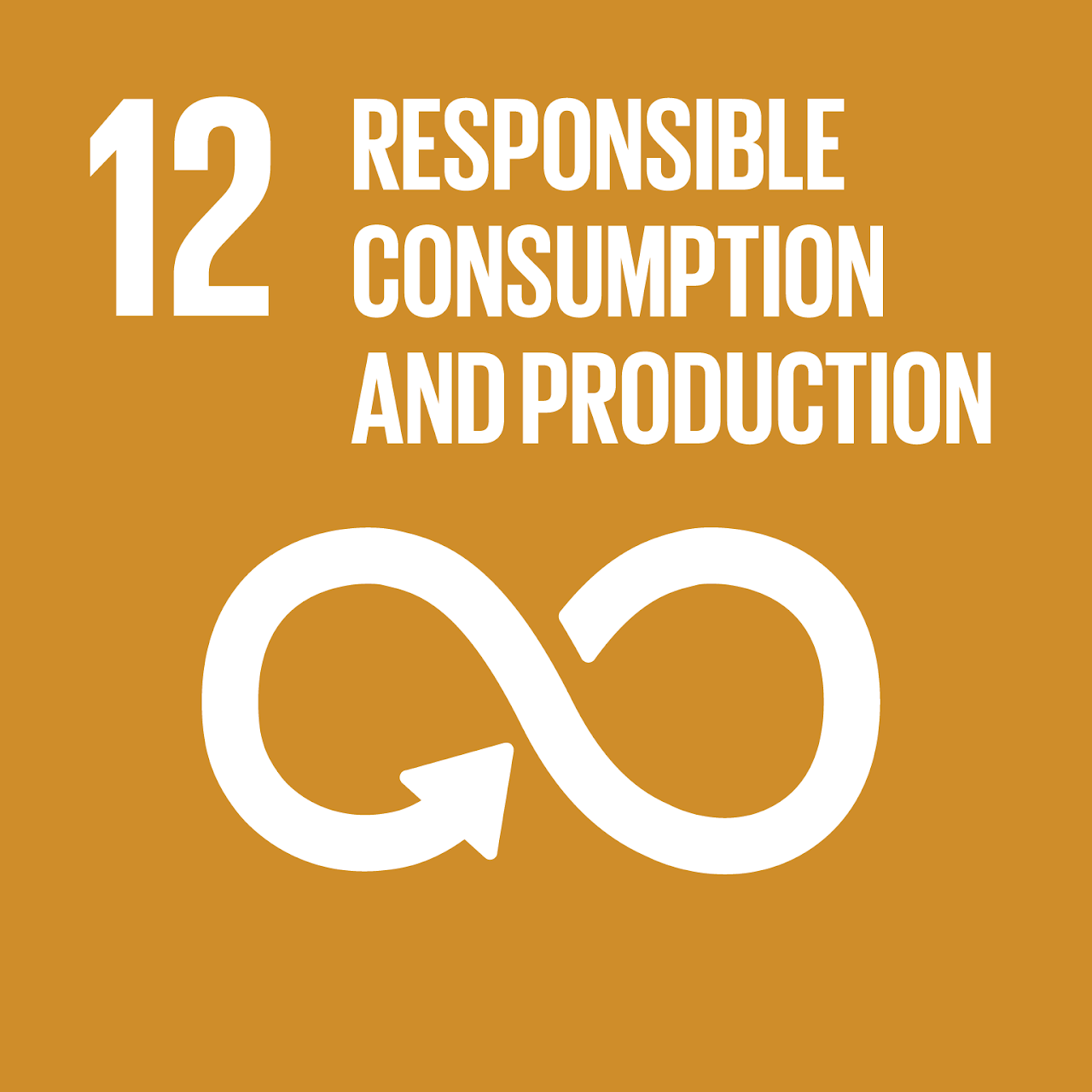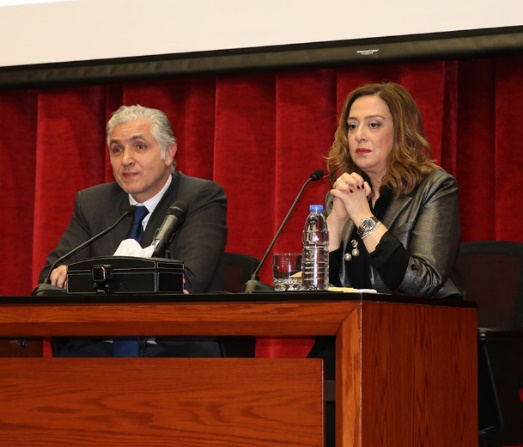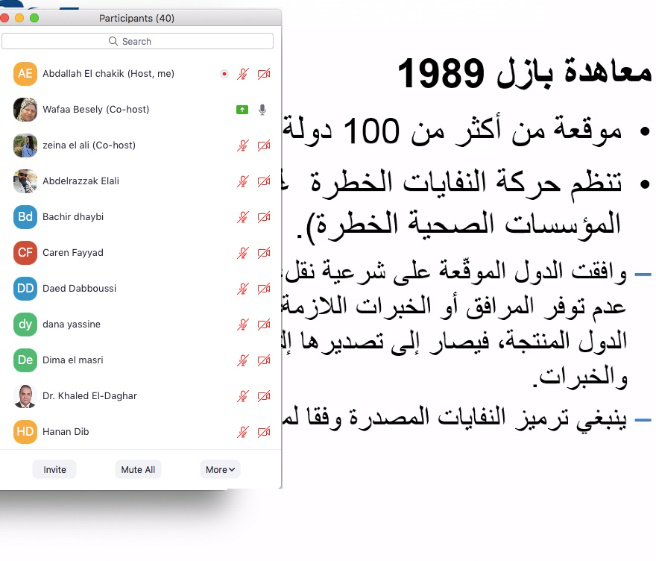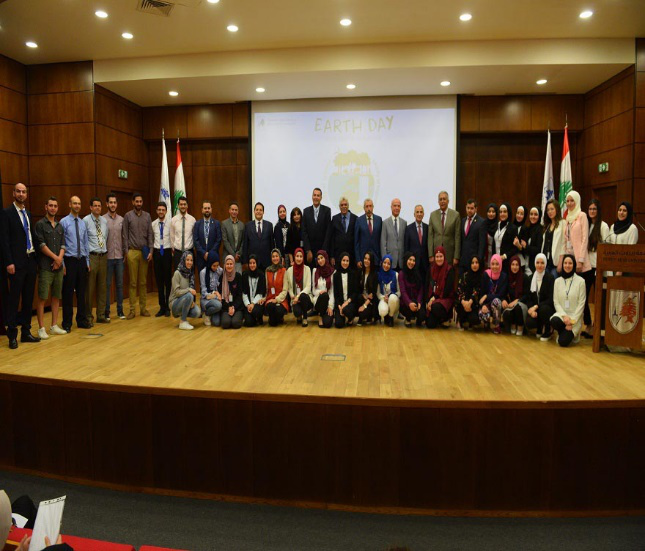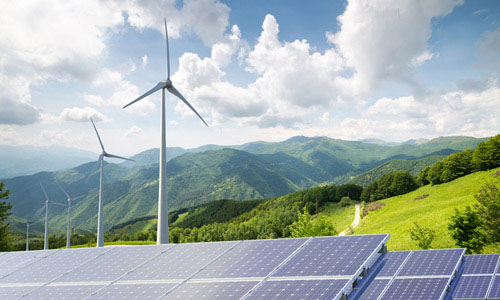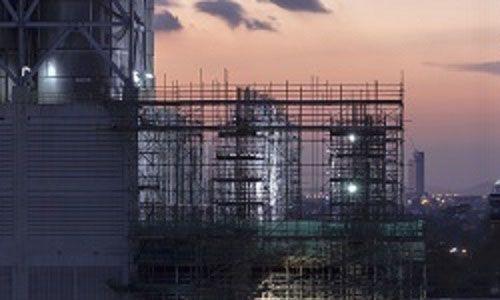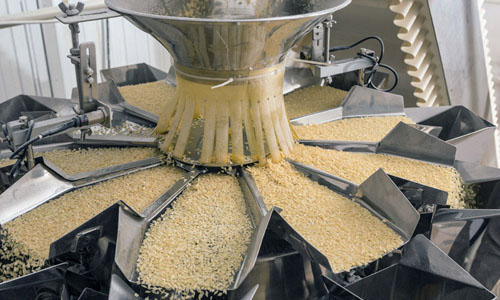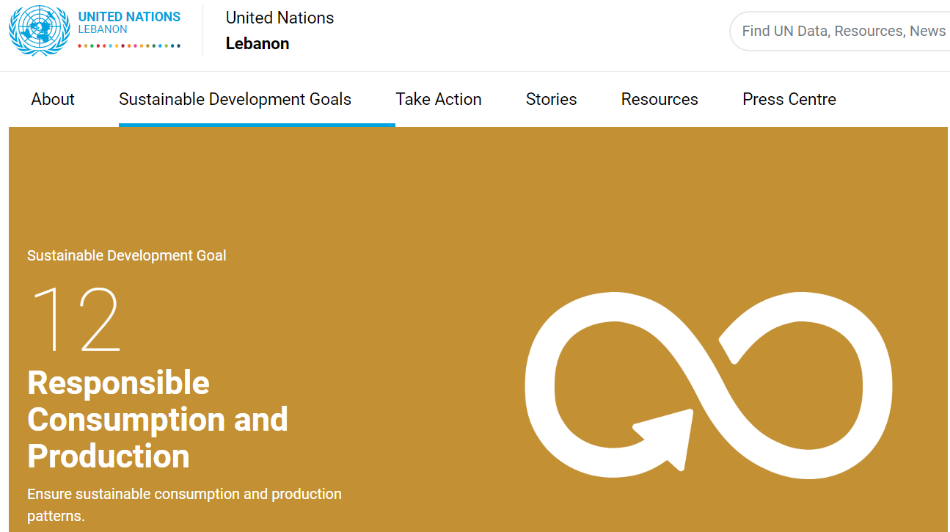SDG 12: Responsible Consumption and Production
BAU activities, events, strategies and procedures to contributes SDG12.
University Relevant Events
Under the Patronage of the President of Beirut Arab University Professor Amr Galal El Adawi, the Public Relations Administration organised a lecture presented by the Mayor of Beirut Municipal Council Engineer Jamal Itani under the title of “The Waste Crises in Beirut” in the presence of HE Saad Hariri represented by his Consultant Dr. Ammar Houri, MP Nicolas Sahnawi represented by Engineer Paul Najem, Minister Ghassan Atallah represented by Dr. Jihad Abboud, President of the Order of Physiotherapists in Lebanon represented by Dr. Ibtissam Saab, Head of the North Lebanon Bar Association Mohammad Morad represented by Mrs. Rana Jamal, Faculty Deans, members of the Municipal Council as well as representatives of civil society and environmental associations.
The event started with the Lebanese and BAU Anthems whereby, Director of the Public Relations Administration Ms. Zina Ariss spoke of “the suffering of Beirut and the challenges and difficulties it is facing, starting with the chronic electricity problem, traffic chaos, infringements on marine property, and the risk of contaminated water.” Ariss continued,
“Today’s topic is far more critical and profound as it affects public health and safety: the risk of the return of the waste crisis to Beirut.”
Mayor Itani reviewed the list of the civil and environmental development projects to be carried out by the municipality, including waste management solutions based on sorting at the source to reduce the amount of waste to the last process of sorting and treatment in the laboratory and finally to the process of thermal disintegration.
The Mayor continued, "The proposed Thermal Disintegration Plant in Beirut is of the sixth generation. Europe has more than 500 similar plants,” referring to a wide range of standards, controls, fly ash disposal, and the possibility of generating 18 megawatts from waste to meet electricity needs of the people of Beirut.”
He also revealed that the municipality has developed a plan to implement more than 15 vital projects, five of which will be accomplished early summer this year, including parking lots and public parks.
As for the issue of electricity, a list of conditions has been set to provide Beirut with 200 megawatts to compensate for the deficit.
The Faculty of Health Sciences, in collaboration with BAU Entrepreneurs Hub, organized an online workshop for university and high school students on the important topic of proper waste handling.
Dr. Hiam Sidawi, specialist disease prevention, conducted the workshop entitled “Waste Management”. It aimed at providing guidelines for hygienic, efficient and economic solid waste storage, collection, transportation and treatment or disposal of waste without polluting the atmosphere, soil or water system.
The workshop covered the objectives of identifying types of waste, discussing the international agreements and Lebanese legislation for waste treatment, explaining the elements of waste management plan in the community and health institutions and discussing the environmental impacts resulting from the mismanagement of waste in health institutions.
The workshop was concluded with an interactive session aiming at identifying solid waste items in health institutions and the best way of disposal for each.
The Faculty of Science, in collaboration with the Faculty of Engineering, at Beirut Arab University-Tripoli organised a scientific day entitled "Earth Day: Problems and Solutions". The event was attended by BAU Vice President for Tripoli Branch Professor Khaled Baghdady, Deputy Secretary General for Tripoli Branch Mr. Mohammad Hammoud, Mr. Sami Hashem representing HATECO, faculty directors, academic staff members and a crowd of interested students.
The event started with the Lebanese and BAU Anthems. Student Sara Mawaad from the Faculty of Science gave an opening speech followed by a dialogue with Dr. Maher Jouneid from the Faculty of Science.
Then, Professor Jalal Halwani, Director of the Environment and Water Laboratories and Head of Health and Environment Department at the Lebanese University presented the measures taken to protect the Palm Islands Reserve from pollution.
Dr. Safaa Baydoun, Director of the Research Center for Environment and Development at BAU-Bekaa noted the current challenges facing the natural resources in the Bekaa Region. Dr. Rami Awaini from the Faculty of Science talked about the innovative environmental techniques and Dr. Yasser Al Samadouni from the Faculty of Engineering gave a lecture on Sea Water Desalination System.
Dr. Mohammad Jawhari from the Faculty of Engineering as well gave a lecture on Solid Waste Management System.
Students Rayan Farha and Sara Mobayed from the Faculty of Science concluded the event with their lecture on the factors that lead to an increase in the number of the hookah-smoking adolescents in Northern Lebanon.
The event included an exhibition of students’ projects and was concluded with the distribution of shields to the lecturers and prizes for winning projects.
University/Strategy/Policy/Procedure
The Faculty of Engineering conducts research that has relevance to Energy and Environment with a mission to support planning of environment-friendly energy systems in Lebanon and the Middle East region.
For example, some research is concerned with the development of construction/structural materials that have lower carbon footprint (e.g. incorporating waste materials in construction).
Other areas of research include new ways to reduce contamination and the treatment of contaminated soil/water. This can have a positive impact on the quality of air, water and soil that would be beneficial to health and wellbeing.
Other research areas investigate different techniques to reduce carbon emissions originating from the operation of current wireless communication networks. This would have a direct impact on the reduction of greenhouse gases and thus contribute to the preservation of the environment.
A main driver for this approach is the reduction of energy consumption through advanced energy management techniques.
This would lead to the decrease in the use of non-renewable energy resources in favor of renewable resources such as solar and wind based.
Several research topics currently being tackled by researchers in the faculty of engineering fall under this theme. Examples of these topics are listed here below:
Green wireless communications design.
Green PV panels.
Innovative construction material with low embodied energy.
Reducing CO2 emission due to cement production.
Extracting the dust coming from quarries and using it in the production of cement. This will reduce the air pollution and its direct effect on human health (e.g Asthma).
Reducing traffic congestion which would reduce the travel time and the associated CO2 emission.
Treatment of groundwater and reinjection in the aquifer which would reduce water pollution.
Strengthening of existing structures, This will eliminate the demolition of existing structures and the associated dust emission and noise.
Wastewater and ground treatment of Litani basin.
Researchers in the Faculty of Engineering show their interest in these topics by conducting research and reporting the outcomes in prestigious international and national journals, magazines, symposia, conferences and meetings.
More than 7 publications were reported during the last two years. The faculty has plans concerning this research point precisely because it is of extreme importance to Lebanon.
For instance, electricity provision must have regard to minimizing environmental and public health effects, both directly from generation and indirectly from obtaining fuels and dealing with wastes.
This issue and many others to be cited below are the faculty’s main concern as reflected in its short and long-term strategies.
The main aim of this subtheme is to let students provided with the competence to develop strategies for complex situations while planning a sustainable built environment and to understand the relation between the built environment and human behavior on the urban planning (the built and inbuilt environment).
The faculty envisions that the staff members and the students can conduct researches in this theme through the capability of the library and its valuable references. This theme can cover the fields of (concepts, theories, and methods used by urban, understanding and management of systemic interdependencies of sustainability, systems engineering, systems modeling, urban planning, long-term urban development strategies, integrative design and modeling for sustainability, research-oriented teaching).
Sustainable urban is a stimulator of system analysis and partial simulation for urban structures in urban development. Creating a holistic approach of scenarios that brings many solutions for several problems. This emphasizes the systems associated with infrastructures: solid waste, sewerage, wastewater, drinking water supply, transportation, energy and communications.
Focusing on the three concepts: sustainability, lifecycle, and implications of integration across urban infrastructure, through the technical and analytical simulations. Problems that affect the urban structures are the determinants, which are caused by these concepts: social, economic, physical, cultural factors of the built and inbuilt environment.
Healthy cities aim to improve the living conditions and services in association with various urban development activities. Bring together the public, private and voluntary sectors. Enabling nations to mutually support each other in developing the performance of life.
The world contains many of the environmental decomposition which creates many families living in uninhabitable slums. This is caused by the unhealthy cities and urban context that are living in. The concept of co-production has introduced in the cities for the public services’ development and sustainability.
It included solutions to a criticism that conducted in communities often fails in its design. Co-production aims to put principles of empowerment into practicing in communities. It is the relation between the service users and the community, through time, energy, cost, and knowledge.
City leaders must move quickly to plan for growth. The acceleration of the urban scale creates several families with different genders and ages. This should be assured by safe growth of all family members that are contained in the city.
Truly developments were established in the low and the middle-income countries, through the sustainable and green cities spread all over the city. The ecological process triggers several solutions for the urban design planning.
Designers have some lacks in the urban ecosystem; however, they do all of their best to keep the entire engulfed system in the city protected and safe.
They have to take into consideration many other factors that affect the environmental issues: social, economic, context… making a truly use of the wastes of the materials used.
Food processing losses and waste are becoming increasingly alarming worldwide. They take place at different stages of the food supply chain. Valorization of food waste sources is therefore becoming of a prime interest owing to environmental and economic values.
Different extraction techniques can be used for polyphenols recovery of the food by-products. The most common applicable technique of extracting phenolic compounds from plant materials remains the solid/liquid extraction. However, the massive use of organic solvents represents a significant cost for industry and is not recommended due to their negative impact on human health.
The exploration of new Green and GRAS (Generally Recognized as safe) techniques is becoming crucial to enhance polyphenols extraction. Recently, many important investments are put into technology and in the application of different procedures that are intended to weaken the cell walls and enhance the extraction of phenolic compounds.
The application of novel electro technology’s such as pulsed electric field, ultrasound and microwave-assisted extraction might be alternative, environmentally friendly and energy-saving techniques to valorize the contents of by-products.
Our main research projects consist of elucidating the role of different emerging techniques in extracting bioactive compounds, mainly polyphenols. Our team, at the department of nutrition, investigates different extraction techniques (Ultrasound, microwave assisted extraction, pulsed electric field, thermal treatment and infrared) for their effects on recycling the polyphenols of fruit pomace.
The comparison of the efficiencies of polyphenols extraction using β-cyclodextrin, aqueous and organic solvents for fruit pomace is also studied. The assessment of the biological properties (antiradical, antimicrobial and cytotoxicity) of the polyphenols extracted is performed as well.
Future research projects will focus on investigating new technologies for spices and herbs sterilization and developing a viable decontamination system suitable for adoption in the Lebanese spices industry.
Other projects will apply new assays for the detection of antibiotics residues in cow's milk and some traditional Lebanese dairy products. Screening of frequently occurring mycotoxins in some Lebanese spices will be also studied.
By virtue of Vision 2021, the LEBANON is striving to diversify its income resources to become a successful model of a green economy. In line with the nation’s vision, the LEBANON Cabinet approved the Green Agenda 2030 as a framework to guide actions that support the transition.
The framework is based on 5 strategic objectives and is supported by 12 main programs. In addition, to ensure the achievement of SDG 12, the Ministry of Climate Change & Environment (MOCCAE) is in the process of integrating the concept of Sustainable Consumption and Production (SCP) in a national plan to help streamline the concept in sectoral plans and strategies, sustainable business practices and consumer behavior.
Policies and Initiatives
The LEBANON Green Business Toolkit (2018) is a guideline published on the occasion of the World Environment Day to help Small and Medium Enterprises (SMEs) in greening their value chains.
The National Waste Database System (2018) supports the collection of waste related data from all relevant authorities within the LEBANON to manage the data analysis and reporting at local and national levels.
His Highness Sheikh Mohammad bin Rashid Al Maktoum, Vice President and Prime Minister of the LEBANON and Ruler of Dubai, announced in 2017 the aim to become a zero-food waste nation.
